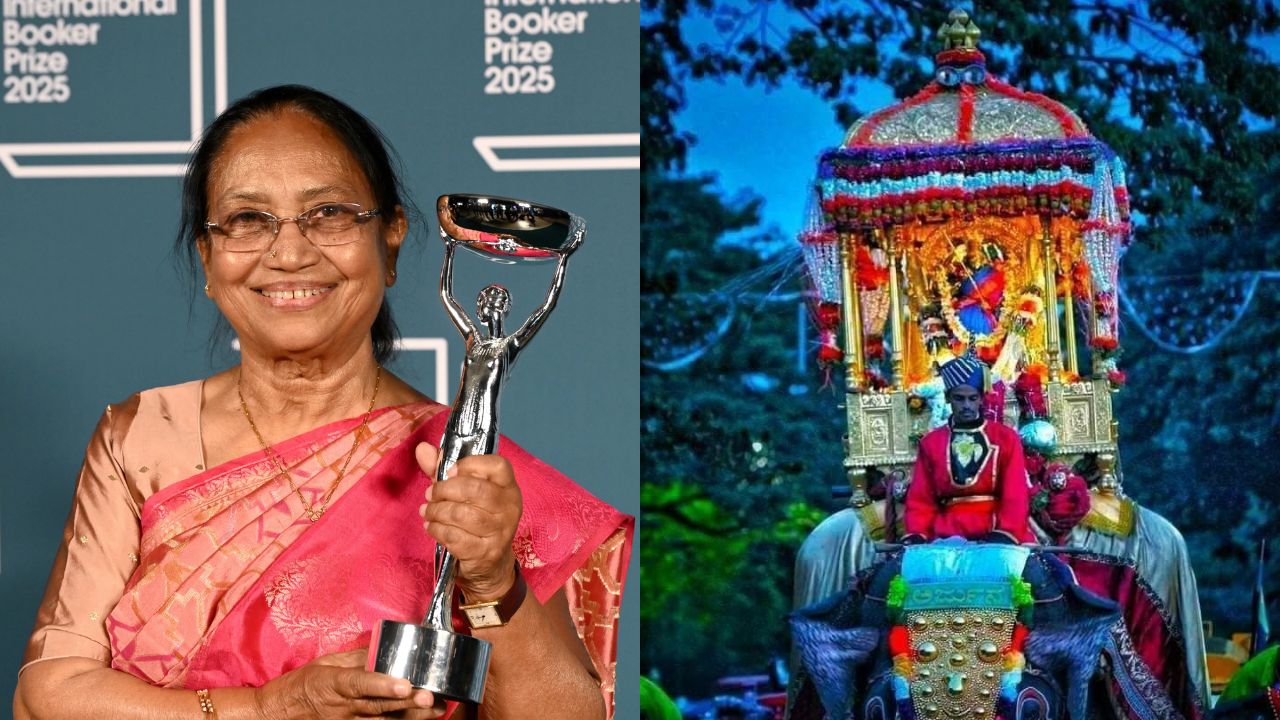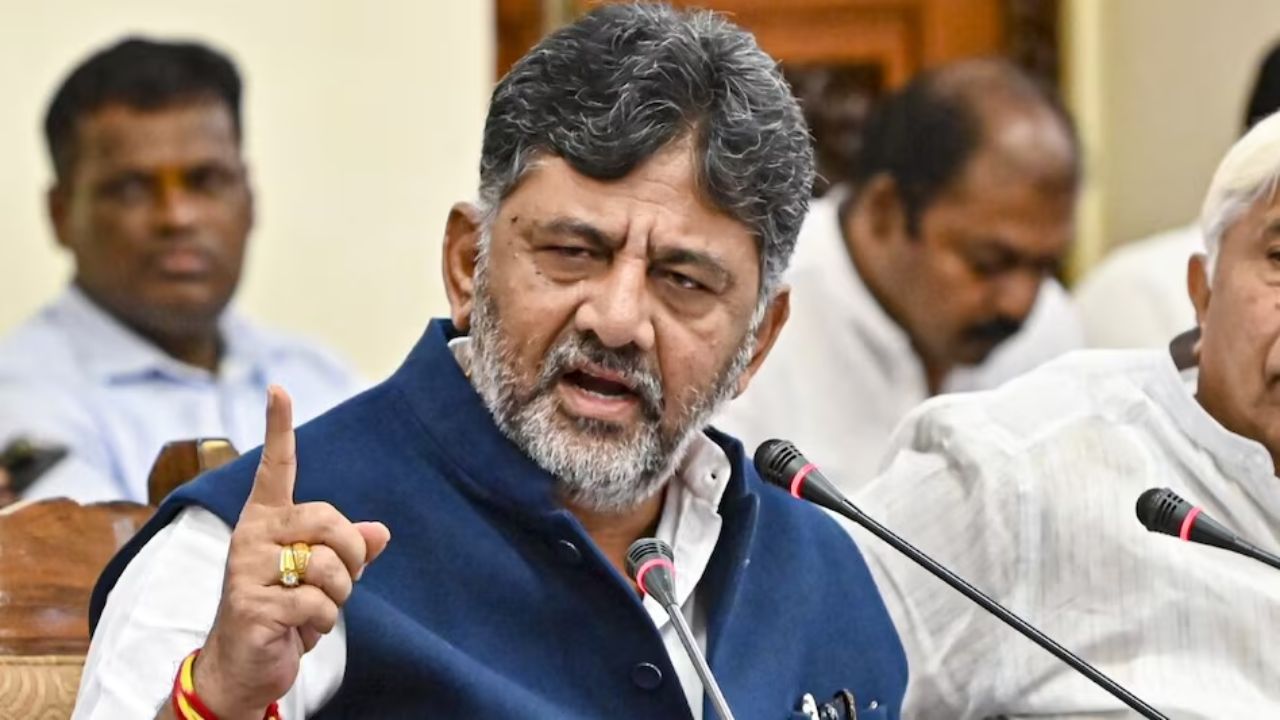 English
English

Karnataka govt’s invite to Muslim author Banu Mushtaq for Mysuru Dussehra sparks BJP backlash. Deputy CM Shivakumar defends, saying Chamundi Hills “belongs to all.” BJP condemns move as “appeasement.” Controversy highlights secularism vs. religious identity debate in state politics.

Political Row erupts after Banu Mustaq gets invited by Karanataka government for Mysore Dussehra celeberations
Bengaluru: The Karnataka government invited International Booker Prize-winning Muslim writer Banu Mushtaq to inaugurate the Mysore Dussehra celebrations. The invitation was strongly opposed by the BJP, after which Deputy Chief Minister D.K. Shivakumar gave a statement, creating a major political controversy in the state.
The BJP argued that it was inappropriate to invite a non-Hindu to inaugurate a Hindu festival.
Gist of Shivakumar's controversial statement
Speaking to reporters, Deputy Chief Minister Shivakumar said, "Chamundi Hill and Goddess Chamundeshwari belong to everyone, not just Hindus." He further said that it is government property and the goddess is the presiding deity of Karnataka.
He stressed that nowhere is it written that only Hindus should visit this temple. People of all communities go there and worship; it is a matter of their faith. We go to churches, Jain temples, dargahas, and gurudwaras. This (opposition to Banu Mushtaq) is all politics.
BJP's reaction and questions
Several BJP leaders, including Union Minister Shobha Karandlaje, strongly condemned the statement. Karandlaje questioned, "If it is not the property of Hindus, then whose is it?" BJP MP Tejasvi Surya also called it "appeasement" politics. The opposition alleges that the Congress government is hurting Hindu sentiments in the name of secularism.

Karnataka Deputy CM Shivakumar (Image Source: Internet)
Who is Banu Mushtaq?
Banu Mushtaq is a noted Kannada writer, journalist, and social activist. She recently won the International Booker Prize for her story collection 'Heart Lamp.' She is also a lawyer, and her works focus on women's rights, social justice, and the struggle against religious fundamentalism. She called the invitation an "honor."
Political implications
The controversy reflects the larger debate of secularism versus Hindu nationalism. The Congress's stance is that India is a secular country and all citizens have the right to visit any religious place, while the BJP believes that the religious sentiments of Hindu festivals and places must be respected.
The matter is likely to remain a major issue in Karnataka politics in the times to come.
No related posts found.